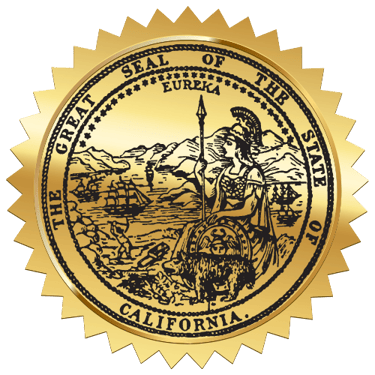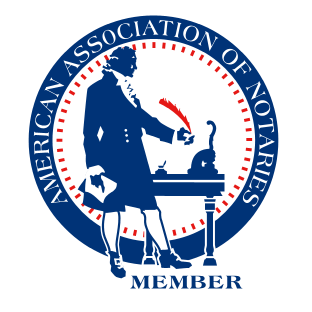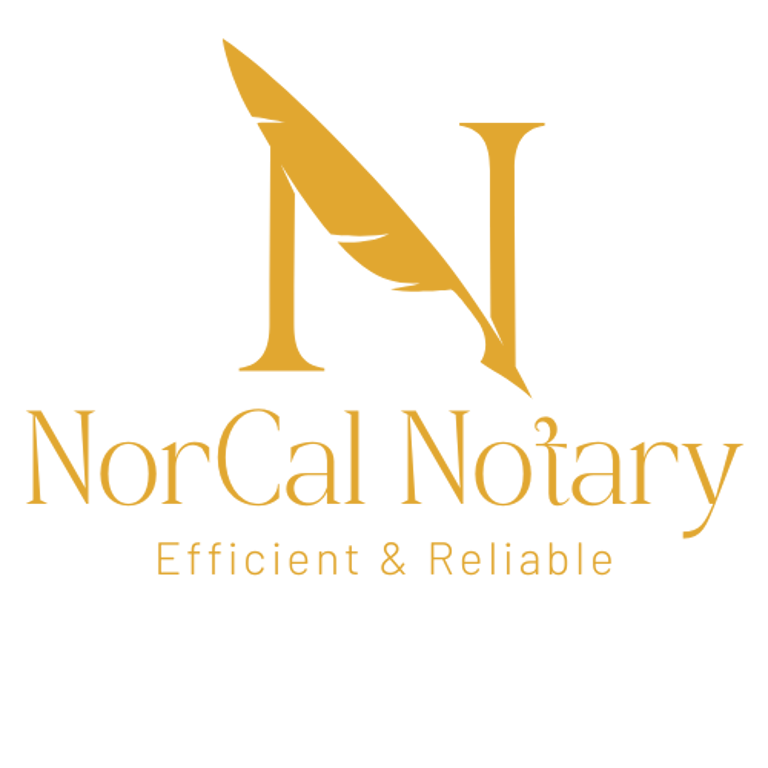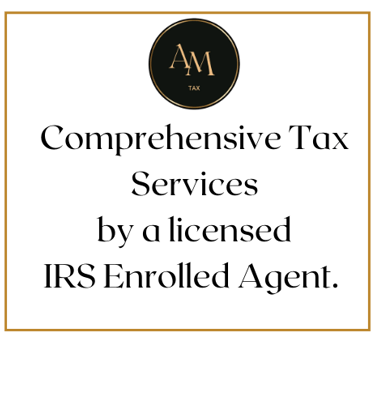
Frequently Asked Questions
What is a Notary Public?
A Notary Public is an official appointed by the state government to serve as an impartial witness to the signing of important documents. A notary's duties include verifying the identity of signers, witnessing signatures, and ensuring that signers are willingly entering into agreements.
What types of documents I can bring to a Notary Public to notarize?
A Notary Public can notarize signatures on a variety of documents, including but not limited to:
Affidavits
Wills and trusts
Powers of attorney
Real estate documents
Loan documents
Business contracts
Medical directives
Tax documents
Foreign documents
Can a California Notary Notarize Vital Record Documents?
No, a California Notary Public cannot notarize vital record documents such as:
Birth Certificates
Death Certificates
Marriage Certificates
Divorce Decrees
These documents are official government records and can only be issued as certified copies by the appropriate government agency, such as:
California Department of Public Health (CDPH)
County Recorder’s Office
County Clerk’s Office
How to get signatures on your documents notarized?
Prepare your document: Make sure your document is filled out and complete. Notary public is not allowed to advise on completing legal forms and documents. If you have questions, consult your lawyer.
Gather your ID: CA Driver License, CA ID card or US passport are the most common documentation needed. If you don’t have any of these, please check here for a list of other acceptable identification.
Schedule your in-person appointment: Signer must be present during notarization act.
Meet the notary: Meeting must be in person (CA doesn’t allow remote notarization yet). Bring your completed document and identification. Upon satisfactory identity verification, your notary will notarize the signatures on your document and ask you to sign in the notary journal. A thumbprint might be taken as well.
What identification is required for notarization
Acceptable forms of identification include:
CA driver License or ID card
A U.S. passport
CA inmate card issued by CA Department of Corrections or sheriff's department.
Other forms of accepted identification (must have a photograph, description of the person, signature, and ID #):
Valid foreign passport
Driver license issued by another state or by Canada's or Mexico's government.
ID card issued by another state
US Military card
Ca state or city employee card
ID issued by federally recognized tribal government
Can a Notary Public provide legal advice or prepare legal documents?
No, a Notary Public is not authorized to provide legal advice, interpret the law, or prepare legal documents unless he or she is a licensed attorney as well. If you need legal assistance, you should consult with a licensed attorney.
What is the difference between an acknowledgment and a jurat?
Acknowledgment: The signer appears before the notary and acknowledges that they signed the document voluntarily. The notary verifies the identity of the signer but does not need to witness the signing.
Jurat: The signer must appear before the notary and sign the document in the notary's presence. The notary also administers an oath or affirmation to the signer regarding the truthfulness of the document.
Can a Notary Public notarize documents in a language they do not understand?
Yes, but the notary must be able to communicate directly with the signer without the use of an interpreter to ensure proper notarization.
How much does notarization cost?
$15 per signature. Additional services include: travel fees, after hours fees, printing fees, etc.
How do notary fees work?
If you have a single document with one signer that requires one notary stamp, but the signer signs on multiple pages, it is still considered one notarization. In this case, the notary fee would be $15. If each signature requires a separate notarization, the charge is $15 for each signature/stamp.
If you have a single document with two signers requiring one notary stamp, it is considered two notarizations in one. The total fee in this case would be $30
Can a Notary Public refuse to notarize a document?
Yes, a Notary Public can refuse to notarize a document if:
The signer cannot provide valid identification.
The document is incomplete or contains blank spaces.
The notary believes the signer is being coerced or does not understand the document.
The notary suspects fraud or illegal activity.
Where can I see how acknowledgment wording and Jurat wording looks like?
Do you guarantee quality of notarizations?
Yes, we 100% stand behind our work and guarantee the quality of our notarizations. Please keep in mind that the guarantee applies to the notarization itself, not to the document presented. A Notary Public is not authorized by law to advise on the format or substance of legal documents. If you create your own legal forms, please ensure you review them with an attorney. Foreign documents must also be reviewed by a foreign attorney. Additionally, please make sure your document has a valid format (e.g., numbered pages if needed) as we do not edit document formats. The document brought to the appointment must be filled out (names, addresses, etc.) and ready to notarize. You do not need to sign the document before the appointment.
How do I cancel or reschedule my appointment?
Once you schedule your appointment, you will receive a confirmation email. The email will include options to reschedule or cancel your appointment.
DISCLAIMER: Notary Public is NOT authorized to provide legal advice, interpret the law, or assist with the preparation of legal documents. If you need legal advice or assistance, please consult with a licensed attorney.
We speak Russian!







